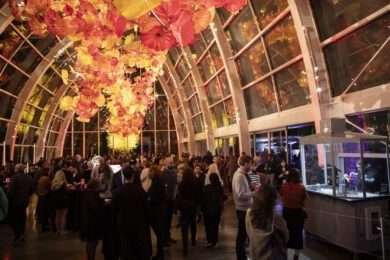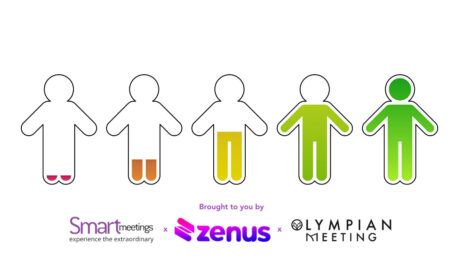The impact is bigger than just a number
Meeting and incentive industry professionals will find lots to love in the Events Industry Council’s recently released Economic Significance of Meetings to the US Economy.
Consider these top line results. The industry generates $325 billion for the U.S. economy. That is more than the contribution of the automotive, oil and gas, music and movie industries. In terms of impact on direct employment, it’s even more impressive, as the industry ranks second only to health care. This is proof that bringing groups together is not only big business—it is an essential part of the global GDP.
Incentive meetings were included as a specific category, comprising 7 percent of overall meeting activity. Oxford Economics, which conducted the study, estimates the aggregate value of incentive meetings to be $22 billion, or $1,438 per attendee, a figure 12 percent higher than the average spend for all other types of meeting.
However, based on the average attendee spend in annual surveys of incentive travel conducted by Society for Incentive Travel Excellence (SITE) and Incentive Research Foundation (IRF), the true amount may be even higher than that. The IRF estimates average spend per attendee at $3,915, while the SITE Index for 2018 found the value to be somewhere between $4,000 and $5,000 per person, depending on industry sector.
Numbers Only Begin to Tell the Story
That said, whenever I read studies or white papers that highlight the industry’s economic impact, there’s a part of me that sighs. Why so? These studies make me sad because, ultimately, they mean we’ve allowed ourselves to be measured in ways that cannot possibly provide a holistic view of our impact—and our worth to society.
Economic impact of Incentive travel experiences is only the tip of the value iceberg. Ninety percent of our value is hidden beneath the surface. Why? Because incentives provide extraordinary experiences for individuals and families via the transformative power of travel. They facilitate human encounters, help overcome barriers, build understanding, cultivate connections and promote peace.
That’s saying a lot, I know. But incentive travel has changed dramatically over the past decade. While these experiences may have once promoted elitism by being extravagant and focusing on luxury, there’s been radical change both in terms of qualifier expectations and company policies. Today’s incentives pivot around the pursuit of authenticity and social responsibility. In fact, the SITE Index for 2018 shows 94 percent of corporations now include some element of CSR in their incentive travel programs.
Necessary Actions
So, if the impact of incentive travel is this broad, should we eschew all measurement in relation to its impact? On the contrary. We should extend the measurement while also doing the following.
- Continue to evolve the model for incentive travel around “new luxury”—the pursuit of authentic experiences, cultivation of new learning and a focus on discovery.
- Continue to incorporate CSR and sustainability elements into incentive travel programs.
- Measure the impact on team morale of incentive travel experiences in relation both to qualifiers and nonqualifiers.
- Extend the qualification criteria beyond pure economic or financial measures.
- Alter the way we talk about incentive travel by highlighting its transformative potential for individuals, communities and societies.
- Build case studies around the lifetime impact of incentive travel experiences for repeat qualifiers who have traveled the world because their organizations offer incentive-travel opportunities.
- Challenge attendees by taking them to destinations out of their comfort zones.
- Measure changes in attitudes and behaviors because of the incentive travel experience.
Will this happen? Who knows! What we do know is that incentive travel works. That’s clear from all the research. But until we broaden and extend the horizons of our metrics, we’ll always be underselling and shortchanging the industry’s power to affect change.
Padraic Gilligan is chief marketing officer at SITE. He is also managing partner at SoolNua, a specialized agency working with destinations, hotels and venues on strategy, marketing and training for the business-events industry.




